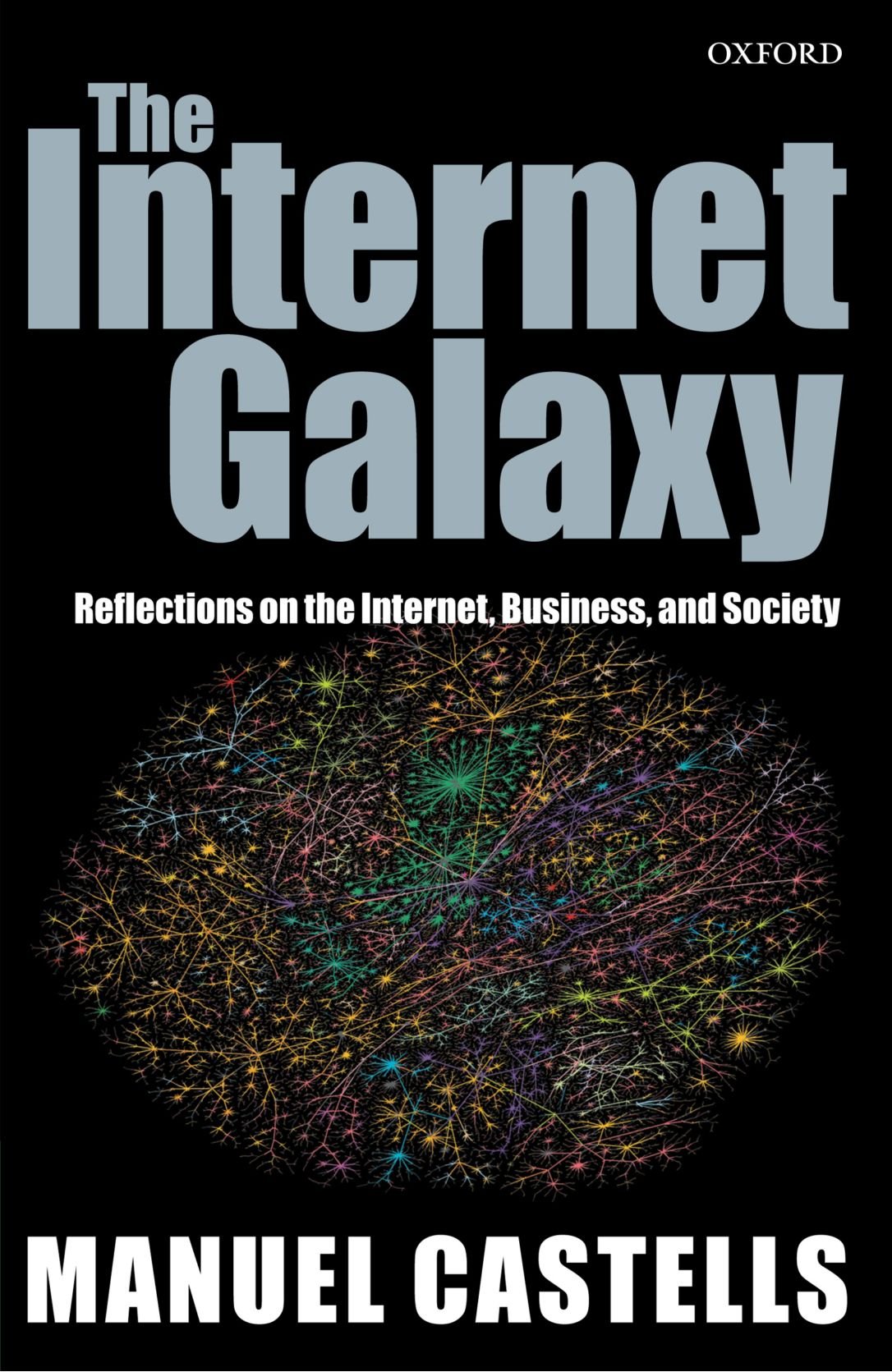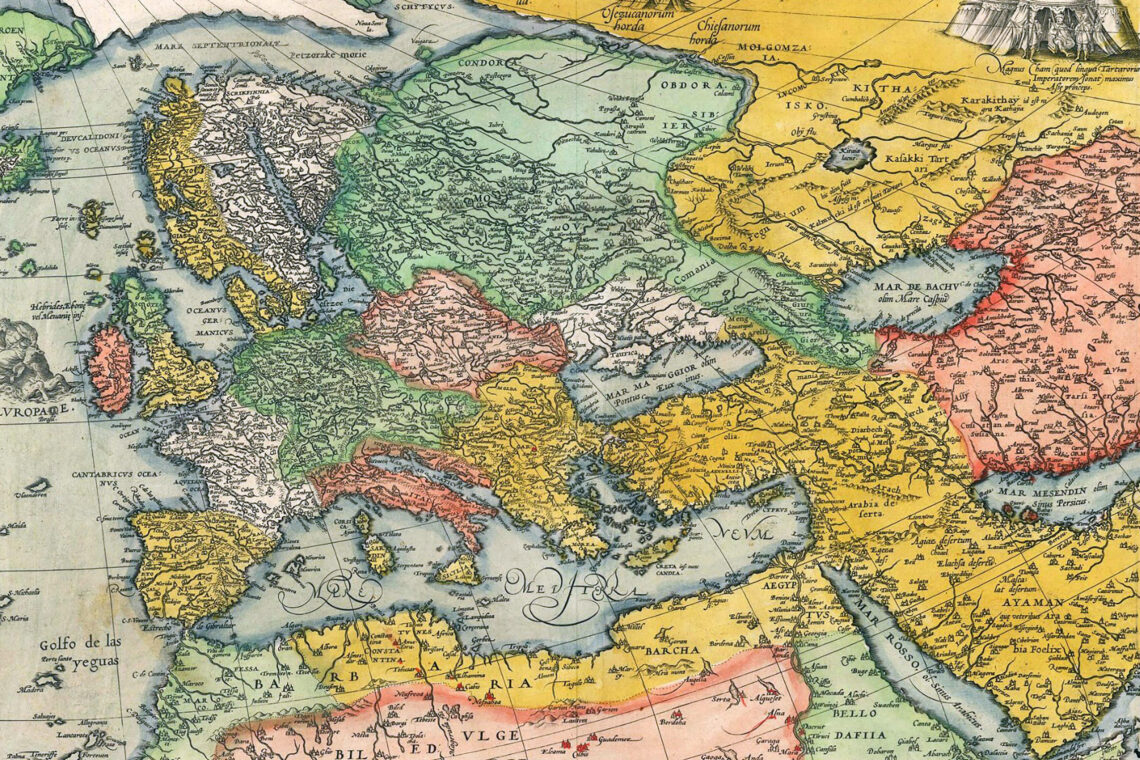To round up my reflections on the computer age, I read Manuel Castells’s reflections on the impact of the Internet on our lives and the future of humanity itself. Castells’s book, The Internet Galaxy, first published in 2001, makes it clear that inasmuch as the Internet is a culture, it is one that is rooted in a particular social tradition. First came the “techno-meritocratic culture” with its academic underpinnings; then came the hackers who tweaked any number of applications to bring them to the public and keep innovation alive; and finally came the “Virtual Communitarians” with goals at odds with the entrepreneurs whose risk (like artists) is often their ideas and thus have little to lose in this “new economy,” the most “multi-ethnic and global than any entrepreneurial culture in history.” Relaxed in their personal styles, enjoying the indulgences of high consumer culture, “Internet entrepreneurs are, at the same time, artists and prophets and greedy, as they hide their social autism behind their technological prowess.”

The Internet, it should be clear by now, is no passing fad. Counted in the trillions of dollars, the new “e-conomy” is changing business practices at every level. Raising money from venture capitalists, entrepreneurs entice talent with stock options, which is, in effect, “deferred income” that gives everyone a stake in the enterprise (that’s how “paper millionaires” are created). Interestingly enough, even though major research centers in the U.S. attract entrepreneurs from around the world, this hasn’t necessarily resulted in the old fashioned brain drain, but in the “emergence of a system of brain circulation,” as successful immigrants open offices and centers in their home countries.
Like most observers, Castells is aware of the popular specter of a society of cyber recluses, disengaged from society and humans, and living in the ghostly realm of the virtual. This fear is not, however, supported by any meaningful evidence, since Internet use (the vast majority of which consists of e-mail correspondence) is basically instrumental in nature, enhancing patterns of sociability already existent in the non-cyber sphere.
The Internet—one must not forget—is primarily a communications medium, but one, to be sure, that reaches out across traditional communications frontiers, making all sorts of global and local (glocal) political alignments possible. Non-governmental organizations (NGOs) and activist groups tend to maximize the use of the new realm of what John Arquilla and David Ronfeldt have called “noopolitik”; but the Internet can also aggravate the democracy deficit, as it becomes the conduit for scandal-mongering and other less edifying engagements. In short, Castells tells us that the Internet is no cure for the political crisis, although it “brings people into contact in a public agora [an early hope of Internet advocates], to voice their concerns and share their hopes.”
More dangers, however, are looming. The freedom promised by the development of the Internet (and bolstered by U.S. constitutional laws, a crucial factor not to be overlooked) and its threat to traditional political sovereignty have quickly been undermined by surveillance technologies, the erosion of privacy and liberty, and the birth of a new human schizoid species–the dual personas of the on-line, off-line citizen. Government and big business are thus reasserting control over the highways of communication, although freedom lovers are fighting back with technologies of anonymity. The specter of inhabiting a totally “transparent” society is something that Castells takes seriously.
As of 2000, there was no significant convergence between the Internet and other media platforms, such as television, partly because the use of broadband was still limited and because people, for the most part, preferred to keep Internet and entertainment activities separate. The vast majority of Internet users used email and search engines, looking up product and health information, and reading mostly free newspapers and listening to radio programs not available locally. Still, this is not to say that the Internet has had no impact on education and learning. People may still read printed books, but book production and distribution have been altered by Web technologies. And if there has been no consensus of a universal hypertext “as an actual interactive system, digitally communicated and electronically operated in which all the bits and pieces of cultural expression, present, past, and future, in all their manifestations, could coexist and be recombined,” it’s good to know that, at least, I have my own hypertext, just like you have yours. Or perhaps, it is (digital) art, which through open source methods, allows for collaborative work, can bridge the cultures and reduce misunderstanding.
On-site jobs will not end, cities will not die, and people will not be confined to telecommuting, as many fear, in the age of the Internet; but it is true that an “economic geography is emerging concerning the production of the Internet,” a geography that concentrates more wealth, more social interaction, more innovation, more culture, and more prosperity in metropolitan areas, leading to the further marginalization of the countryside. Hi-tech, intensely wired mega-cities will be better connected to each other across the globe than to their respective hinterlands. People will network in networked cities, but they will be less connected to rural areas.
The digital divide is measured by income, ethnicity (in the U.S, Asian-Americans have always led the pack), gender, and other obvious sociological factors. And as soon as the gap seems to be narrowing, the privileged take off through “high-speed broadband” services. This leads to gaps in learning and business advantage, which can then perpetuate class differences. Because the Internet Galaxy is now virtually unavoidable, only robust democratic institutions can turn this new tool of communication and networking into an unqualified good.
For Castells, the stakes are very high.




Comments are moderated by the editor and may not appear on this discussion until they have been reviewed and deemed appropriate for posting. All information collected is handled in a manner consistent with our privacy policy.